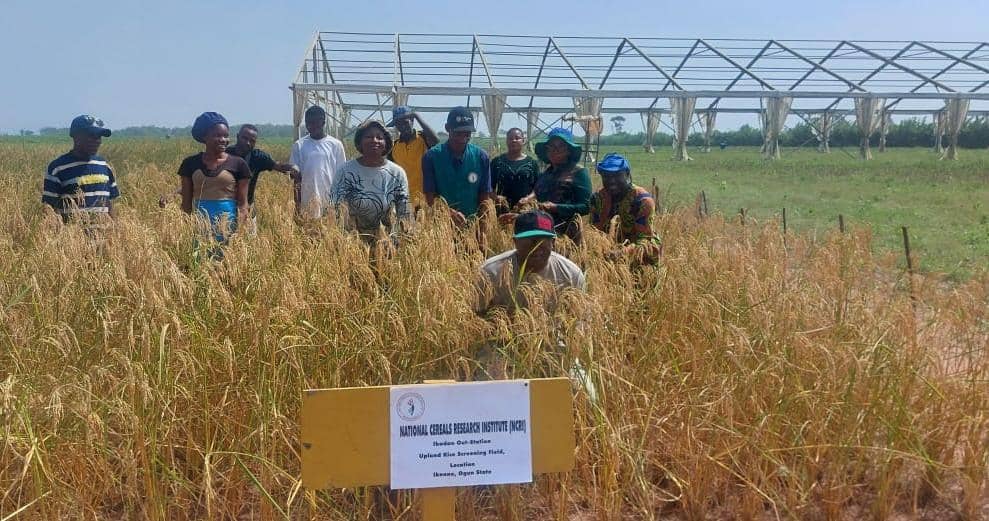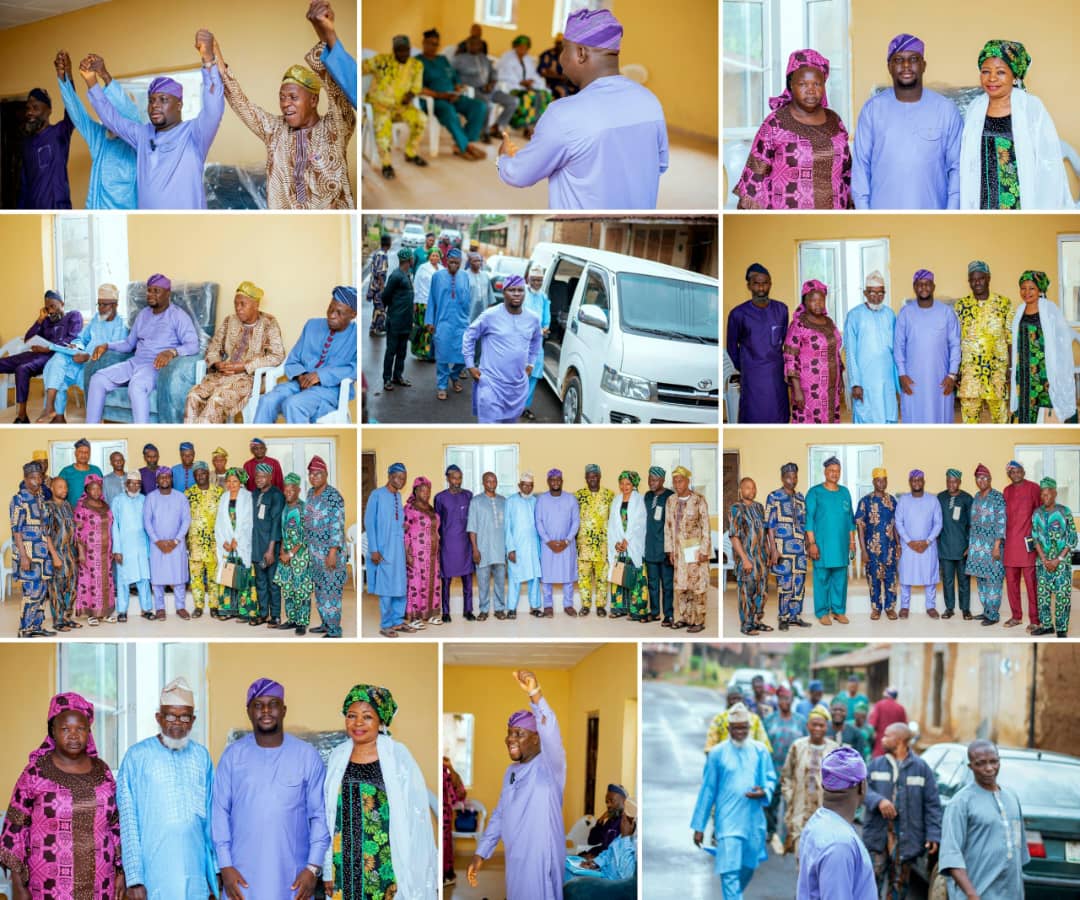Rice is a staple crop essential for global food security, yet its production is highly sensitive to environmental stressors. Upland rice ecosystems, which depend on rainfed conditions, face increasing challenges due to erratic rainfall, prolonged droughts, and rising temperatures exacerbated by climate change.
These stresses threaten the livelihoods of smallholder farmers, who predominantly cultivate rice under such marginal conditions. In response, breeding rice varieties with climate-resilient traits has emerged as a strategic intervention to address these challenges by the National Cereals Research Institute.
The team of scientists has a coordinated approach through the involvement of neighboring young farmers organization in Ikenne to participate in the PVS to breeding and improving local Ofada rice cultivar in Ikenne, on the 28th of November 2024.
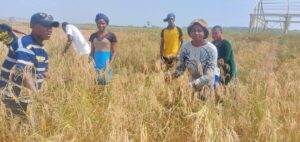
Ofada rice, a locally adapted but less productive rice cultivar predominantly grown in Nigeria, is a prime candidate for genetic improvement. Known for its aromatic qualities and unique grain characteristics, Ofada rice is a cultural and economic asset.
However, its susceptibility to drought, pests, and diseases, coupled with low yield potential, limits its sustainability in upland ecosystems.
To enhance its resilience and productivity, integrating interspecific breeding, crossing Ofada rice with elite rice varieties that possess desirable traits offers a pathway for developing superior improved varieties adapted to local environment.
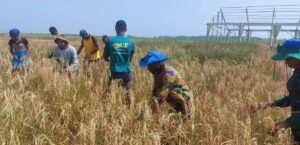
“NCRI research scientist at the Ibadan station, led by Dr. Abraham A. Shaibu, and Agricultural Superintendents Mr. Bello Haruna, Mrs. Olayinka Kingsley, and Mrs. Owoade Aduba, use a Participatory Varietal Selection (PVS) approach in this breeding process to reach the target farmers. The PVS actively involves farmers in selecting and evaluating rice lines at maturity stage to select lines that can be used in breeding to improve Ofada.
In this critical process, farmers bring practical insights into trait preferences, such as grain quality, grain type, height and adaptation to local environment for example drought tolerance, early maturation, and pest resistance, ensuring the acceptability and adoption of the improved varieties. By leveraging farmers’ knowledge, PVS facilitates the development of rice cultivars that are not only high-yielding and climate-resilient but also align with local needs and preferences.
Participatory Varietal Selection (PVS) is a collaborative approach that integrates the knowledge and preferences of farmers into the breeding process, enhancing the adoption and sustainability of improved crop varieties. The National Cereals Research Institute (NCRI) has extensively utilized PVS to develop rice cultivars tailored to local agro-ecological conditions, with profound impacts on rice production, farmer livelihoods, and national food security.
By combining cutting-edge breeding techniques with farmer-centric approaches, this initiative aligns with the broader goals of sustainable agriculture, climate adaptation, and food security in upland rice ecosystems, thereby creating a dynamic, farmer-driven research system that can adapt to emerging challenges in rice production.
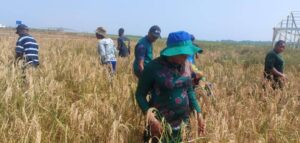
In Ikenne, a hub for upland rice research and production, the collaboration between farmers and breeders at NCRI will further catalyze the creation of rice varieties that will be suitable to the upland ecosystem, enhancing productivity and farmer livelihoods.
Furthermore, this approach has empowered local communities, strengthened the link between research and practice, and promoted the adoption of improved varieties across Ogun State and beyond.
For Africa’s broader agricultural landscape, scaling up such participatory breeding initiatives can address the dual challenges of food insecurity and climate change. By focusing on local adaptation, farmer-centric innovation, and sustainable practices, PVS and upland rice breeding hold the potential to transform rice farming systems, ensuring resilience, productivity, and prosperity for future generations.
Dr. Abraham Attah Shaibu
Plant Breeder
WARNING: If You Are Not 18+, Don’t Click The Link Below 👇🫣
https://headacheaim.com/kx6iepv2qm?key=6c14bd1d68e1eba721851f19778f5efe
Please don’t forget to “Allow the notification” so you will be the first to get our gist when we publish it.
Drop your comment in the section below, and don’t forget to share the post.
Never Miss A Single News Or Gists, Kindly Join Us On WhatsApp Channel:
https://whatsapp.com/channel/0029Vad8g81Eawdsio6INn3B
Telegram Channel:
https://t.me/gistsmateNG






